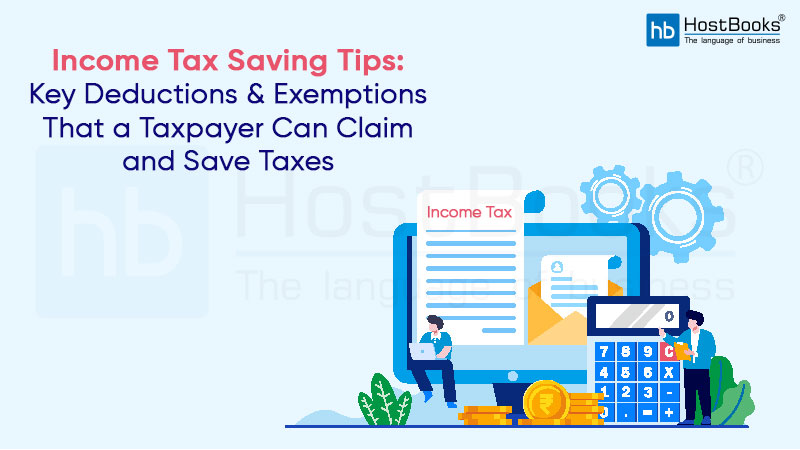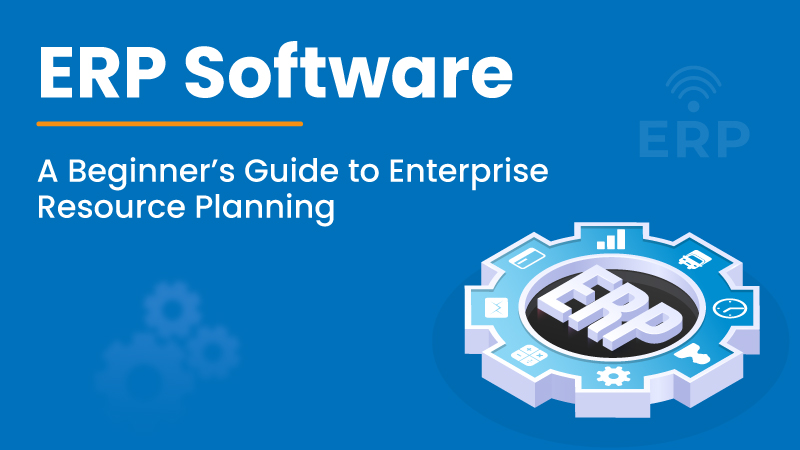Income Tax Saving Tips: Key Deductions & Exemptions That a Taxpayer Can Claim and Save Taxes

Paying income tax is a civil duty, but saving taxes within the laws is Smart Financial Management. Yeah! You do agree with saving some bucks from your total taxable income with the legitimate ways. And if you are thinking that it is like wheels within wheels that make you feel like a beached whale, you might want to reconsider your perception if you are reading this article. Indeed, it is like choosing the stuff in a shopping mall that has great reward points and redeeming them later. Needless to say, you need smart planning and better strategies when it comes to tax-saving investments. But as you do consider tax-saving an essential task, it is important to understand these key income tax deductions that you can claim and save the maximum of your tax.
Key Income Tax Deductions & Exemptions
Deductions on Investments
Investment in various tax-saving instruments is the best way to save taxes. It allows taxpayers to reduce their total taxable income along with a good return and have double benefits. It is available for both individuals and HUFs (Hindu Undivided Family).
So, if you are a taxpayer and have invested in LIC, PPF, mediclaim, mutual funds, deposits, or even paying your children’s tuition fee, you can claim deductions from your total taxable income. Under section 80C of the Income Tax Act, taxpayers can claim deductions up to Rs.1.5 lakh in a financial year for their investments eligible for tax exemptions. In simple terms, such investments don’t only generate high returns for you but also save taxes by availing deduction while calculating total taxable income.
Deduction on Annuity Plan of LIC or Other Insurers
An insurance plan is one of the vital investments that you can make use of, not only for life security but also for tax return! Section 80 CCC allows deductions for the amount invested in annuity plans of LIC and any other insurer such as ULIPs, health insurance, etc. But such insurance plans must be subject to receiving a pension from the fund, referred under section 10 (23AAB). Under this section, the tax benefits are only given on the premium payments and the deductions up to INR 1.5 lakh can be claimed.
Deduction for Contributions Made towards NPS
A pension fund is such a paddle of your lifeboat that sails your life-like-boat when you are unable to sail it on your own. Besides, it helps you save the taxes you pay to the income tax department in a financial year. Under section 80CCD, you can claim a tax deduction if you deposit a part of your income to the pension fund. If you are a salaried employee, you can avail of deductions up to 10% of your salary or 20 % of your gross total income if you are self-employed or up to Rs. 1.5 lakh – whichever is less. But the consolidated amount of deductions cannot exceed 1.5 lakhs as per section 80CCE.
Deduction for Self-Contributions to NPS
Taxpayers can self-contribute to the NPS account even if they are not salaried employees. And if you are investing in NPS, you are eligible for a tax deduction. Under section 80 CCD (1B), taxpayers can claim additional deductions up to Rs. 50,000 in a financial year against contribution made to their NPS accounts. A contribution made by taxpayers under Atal Pension Yojna is also eligible for the same deduction.
Deduction against Interest Income from Bank Saving Accounts
Interest from Bank Saving Accounts and Post Office Deposits is subject to a tax deduction to a certain extent. Under section 80TTA, Individuals or HUFs can claim a tax deduction of up to Rs. 10,000 against interest income earned from their bank savings account or post office deposits. However, you can’t claim deduction on interest earned from fixed deposits, recurring deposits, or interest income from corporate bonds; though deductions on FD can be claimed by senior citizens under section 80 TTB.
Deduction for House Rent Paid
Under section 80GG of the income tax act 1961, salaried individuals can claim a deduction for their rented accommodation if they don’t avail of House Rent Allowance from their employers. However, the taxpayers and their spouse or children including minors must not own any residential property at the place where they are currently employed, perform duties in the office, or involve in work operations. Also, the taxpayers must not occupy the residential property at any other places from which income from their house property is calculated.
Deduction for Interest on Education loan
According to Section 80E of the Income Tax Act 1961, the taxpayers can claim a deduction if they have availed educational loan for the purpose of pursuing higher study. But the loan must be taken for the taxpayers himself, spouse, children, or for a student to whom the taxpayer is a legal guardian. Note that tax deduction is provided only for the interest part of the EMI, not for the principal part of the EMI.
There is no restriction on the maximum amount allowed for deductions. But you need to get a certificate from the bank that segregates the principal and interest part. Deduction for interest on the educational loan is available for a maximum of 8 years (from the year the taxpayer starts repaying interest or till the time interest is fully repaid – whichever is earlier).
Deduction on Home Loan Interest
Under section 80EE, homeowners can avail of income tax benefits on the interest part of the loan availed from banks or any other financial institutions. The deduction is only available to taxpayers who have only one house property at the time of sanctioning the loan. Also, the value of the property must be less than 50 lakhs and the total loan amount must be less than 35 lakhs. Deduction of up to Rs. 50,000 can be claimed as per this section. Taxpayers can continue availing of the tax exemption benefits until the loan is fully repaid.
Deduction on Equity-Linked Saving Scheme (ELSS)
An equity-linked saving scheme or ELSS is an equity mutual fund that invests a majority of its fund into equity or equity-related instruments. Thus, it has higher returns and is an ideal choice for a long-term investment. Because it comes with a shorter lock-in period and professional fund management, it is regarded as a better tax-saving investment as compared to the other 80C investments. ELSS offers a tax deduction of up to Rs. 1.5 lakh of total taxable income in a financial year with a mandatory lock-in period of 3 years.
Deduction on Rajiv Gandhi Equity Saving Scheme (RGESS)
A resident individual whose gross income is less than or equal to Rs. 12 lakhs can avail tax exemption under section 80CCG of the Income Tax Act, 1961. But the investor must be a new retail investor and investment should be made in listed RGESS schemes as per the requirements. The minimum lock-in period for such investment is 3 years from the date of investment.
Tax Exemption on Agricultural Income
According to section 10 (1) of the Income Tax Act 1961, the income generated from agriculture is exempted from taxation. To be more specific, income generated from agricultural operations such as agricultural productions for the purposes of sale, income derived from the farmhouse to the extent specified under section 2(1A), farming, sapling, seeding grown in the nursery are exempted from the tax.
Deduction for Rehabilitation of Disabled Dependents
Section 80DD of the Income Tax Act, 1961 allows taxpayers to claim the deduction for expenditure incurred on medical treatments including nursing and rehabilitation of their dependent handicapped relatives. There is a fixed deduction of Rs. 75000 if your dependent’s disability is more or equal to 40% but less than 80%. If the disability is more than 80%, there is a fixed deduction of Rs. 1, 25,000.
Deduction for Medical Expenditure
Under section 80DDB, if the taxpayers are a resident individual or a HUF below age 60 years, they can claim a deduction up to Rs. 40,000 with regard to expenditure incurred towards treatments for the prescribed medical ailments for themselves or their dependent relatives. The dependent person can be a spouse, children including minors, parents, and siblings. Under this scheme, there is a maximum deduction of up to 1 lakh if money is spent on the treatment of senior citizens or super senior citizens. But such deductions is subject to obtaining the prescription of approved medical examiner.
Deduction for Voluntarily Donation towards Social Causes
The donation made for charity or other social causes specified under the u/s 80G scheme is eligible for tax exemption up to 50% to 100 % with or without any restrictions. However, donations must be made in any mode other than cash. Donations made in cash exceeding Rs. 2000 will not be allowed for a tax deduction.
Deduction for Contribution to Political Parties or Electoral Trust
Under section 80GGC, the contribution made by taxpayers to any political party is allowed for tax exemption. However, the contribution must not be made in cash. Also, this is not applicable for any companies, local authorities, and judicial officials who are wholly or partly funded by the government.
Similarly, as per section 80GGB, any Indian companies or enterprises that make contributions to a political party or an electoral trust are eligible for tax exemption. But the contributed amount received by a political party must be registered under section 29A of the representative of people Act, 1951. An electoral trust can also receive voluntary donations from companies and reallocate it to the registered political parties.
Deduction for Interest Income from Deposits Held by Senior Citizens
Under section 80TTB, the interest income from the deposits held by senior citizens will be exempted from taxation. Under this scheme, taxpayers can claim a deduction of up to Rs. 50,000. No further deduction shall be allowed under this scheme. Senior citizens who are generating income from their FDs or saving accounts at a bank, a co-operative bank and a post office are eligible for tax exemption.
Summary
Tax Deductions Under Section 80C
- Investment in PPF, PF contributions, NCS, Life Insurance premium payment, children tuition fees
- Principal repayment of home loan, ULIPS, ELSS, five-year deposits schemes
- Senior citizens saving schemes, Contribution to the pension fund
- Expenditure on Home Loan scheme of the National Housing Bank
- Subscription to notified bonds of NABARD
Deduction Under Section 80CCC, 80CCD(1), 80 CCD(2), and 80CCD(1B)
- Annuity plans of LIC and other insurers
- Employee’s contribution to NPS account (up to Rs. 1, 50,000)
- Employer’s contribution to NPS account (maximum up to 10% of salary)
- Additional contribution to NPS account (maximum up to 50,000)
Deduction Under Section 80TTA,, 80TTB, 80GG, 80E, 80EE, & 80CCG
- Interest income from saving accounts
- Interest income from the bank, post office, etc. (For senior citizens only).
- House rent for individuals who don’t receive any HRA from their employer but paying rent for the stay
- Interest paid on education loans
- Interest paid on home loan (applicable for the first time buyer)
- Investment in equities funds like ELSS and RGESS
Deduction Under Section 80D, 80DD, 80DDB, 80U, 80GGB, 80GGC & 80RRB
- Medical insurance for an individual, spouse, children, and Parents
- Medical treatments of disabled dependents specified under section 80DD
- Expenses on individuals who are suffering physical disabilities including blindness or mental illness
- Contribution to political parties (by company or individuals under section 80GGB and 80GGC respectively)
- Royalty received by an individual from his/her parents under section 80RRB
Some Additional Tax-Saving Tips
Along with the above-mentioned tax-saving tips, there are more ways where you can claim tax deductions and save taxes; i.e. gift amounts up to Rs. 50,000 in a financial year are exempted from tax although entire amount of gift received from relatives (who comes under the definition of relation as per section 56(2)) is exempt for tax without any limitation. Moreover, any amount or property received under inheritance, will, or contemplation of death is exempted from the tax under section 56(2).
Disclaimer
All citizens of India (aged below 60 years) whose income exceeds 2.5 lakh are liable to pay tax to the Government of India. Taxpayers are advised to save taxes only in legitimate ways permissible by the Government of India. Tax evasion is a punishable offense. It can attract a hefty amount of penalties or may even land you in jail in some cases under chapter XXII of the income-tax Act, 1961.
Frequently Asked Questions (FAQs)
Q.1. What are the best ways to save on taxes?
- Public Provident Fund (PPF)
- Life Insurance Plan
- Health Insurance Plan
- Fixed deposits
- ULIPs (Unit Linked Insurance Plans)
- Equity-linked Tax Saving Scheme (ELSS)
- National Pension Scheme (NPS)
- National Saving Certificates (NSC)
- Infrastructure Bonds
Q.2. What is a Tax Saving Instrument?
Q.3. What are other prevalent options to save income tax in India?
- House rent paid
- Kids’ tuition fee
- Interest on Bank saving account
- Education loan
- Contribution for social causes
- Physical disability
- Medical expenses
Q.4. How to plan tax-saving investments for a financial year?
Q.5. Is interest on FD exempted from tax?
Q.6. Can a self-employed individual claim deduction for house rent paid?
Q.7. I am a salaried employee, how can I claim a deduction for house rent paid?
Q.8. What is the maximum tax deduction limit on fixed deposits and interest income from saving accounts for senior citizens?
Q.9. Can Non-senior citizens avail tax deduction under section 80 TTA?
Q.10. Can taxpayers claim for deduction on the interest earned from multiple saving accounts?

Try HostBooks
SuperApp Today
Create a free account to get access and start
creating something amazing right now!
















